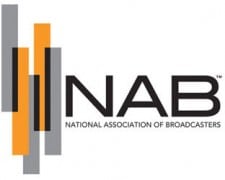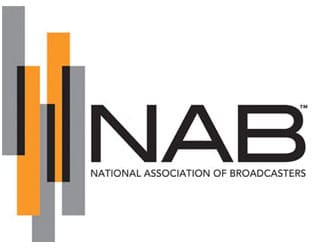 The Consent Decrees governing the licensing of musical works performance rights by ASCAP and BMI provide important protections for licensees from potential anti-competitive behavior by the performance rights organizations (PROs) and their protections should be maintained in full, NAB said in comments filed 8/6 with the DOJ’s Antitrust Division.
The Consent Decrees governing the licensing of musical works performance rights by ASCAP and BMI provide important protections for licensees from potential anti-competitive behavior by the performance rights organizations (PROs) and their protections should be maintained in full, NAB said in comments filed 8/6 with the DOJ’s Antitrust Division.
In its filing, NAB voiced support for the views expressed by the Television Music License Committee and the Radio Music License Committee to the DOJ, and cited an analysis by economist Steven Peterson expounding the public interest benefits of the Consent Decrees. The Consent Decrees, Peterson’s analysis found, creates numerous efficiencies through the aggregate licensing, enforcement and administration of the rights to musical compositions. In addition, the analysis cited the conduct of SESAC – a PRO not governed by a consent decree – to highlight the abuses possible by PROs with blanket licensing ability that is unrestricted by DOJ oversight.
“The aggregation of rights gives the PROs tremendous market power, which in the absence of the Consent Decrees would allow the PROs to extract supra-competitive pricing for their licenses,” said NAB in the filing. “Radio and television broadcasters lack control, in certain instances, over the particular songs that are broadcast. Even with respect to programming created by broadcasters, each of the PROs has aggregated such a large repertory that there is often no practical way to avoid playing music licensed by each of the PROs.”
NAB referred to recent rulings in two antitrust cases brought against SESAC in which the courts expressed the view that there was sufficient evidence that the PRO had engaged in anti-competitive behavior that gave licensees no choice but to purchase SESAC’s licenses.
NAB also urged the DOJ to not amend the Consent Decrees to allow some music publishers to selectively withdraw their catalogs from the PROs for some licensees but not for others. If allowed to do so, music publishers could discriminate against some licensees and leverage their outsized market power relative to those licensees to extract to pay exorbitant fees.
“The major music publishers with substantial catalogs have essentially the same market power as the PROs because their catalogs do not compete with one another, and each has aggregated a large enough number of songs from individual songwriters as to make the licensing of their catalogs indispensable for broadcasters,” said NAB. “If allowed to circumvent the Consent Decrees, those publishers will abuse their market power to extract supra-competitive rates, terms, and conditions from the blanket licensees they choose to target.”
If the DOJ decides to amend the Consent Decrees, NAB said, then it should focus on requiring greater transparency by ASCAP and BMI. The PROs should provide more accurate and comprehensive information about the musical compositions that are being licensed, which could help develop an alternative to the anti-competitive effects of blanket licenses.
“Lack of meaningful access to such information has increased transaction costs and hindered licensing activities – both direct and collective,” said NAB in its comments. “Repertory transparency would allow licensors, licensees, and the rate courts to better understand the rights that are being licensed and their value.”

Noted Francisco Montero, Managing Partner, Fletcher, Heald & Hildreth, P.L.C.: “The U.S. Department of Justice (DOJ) Antitrust Division opened proceedings to review the consent decrees. In 1941 the DOJ brought suit against ASCAP and BMI alleging violations of the Sherman Act Antitrust Act. The DOJ claimed that the blanket license was an illegal restraint of trade and that the prices charged for these licenses were not competitive. The cases were settled by consent decrees. The consent decrees imposed significant conditions on ASCAP and BMI licensing practice. The decrees are reviewed periodically with the last review being in 2001. Having the decrees reviewed or possibly relaxed is certainly very high on ASCAP’s and BMI’s wish list. But the music licensing organizations have had a hard time of it. Just last month, the DOJ announced it was investigating allegations of “coordination” between the publishers and trade groups to secure higher royalties. The probe came after Pandora alleged the parties colluded to change ASCAP/BMI by-laws that would allow for partial rights withdrawals, a move that paves the way for higher royalties and which the NAB opposed. In the NAB filings they focus on the issue of “repertory transparency”. That’s having access to ASCAP and BMI’s repertory of songs so that broadcasters could track who’s song they play. The music licencing organizations have always been reluctant to release their repertories, forcing broadcasters into pricy blanket licenses and making per program licenses very cumbersome and laden with paperwork and essentially unworkable for stations that play a lot of music. But it seems that in the age of computers, personal people meters and digital tracking, there should be a workable means of making these catalogues accessible and capable of being monitored. Also the NAB opposes the trend of publishers withdrawing from ASCAP and BMI to negotiate their own deals with broadcasters, a trend we have seen with some record companies or music groups in the area of recording rights. This would be unworkable if stations had to negotiate separate deals with different publishers. Having to deal with no less than three performance rights organizations (ASCAP, SESAC and BMI) is challenging enough.”





